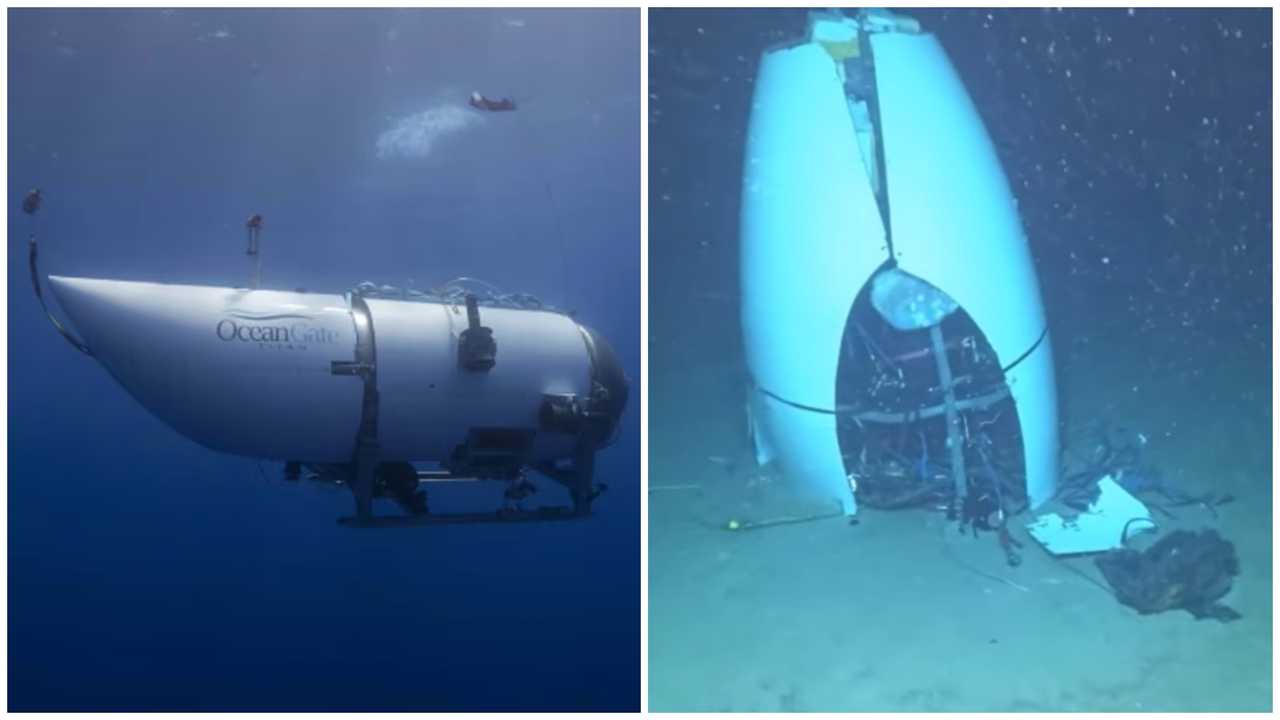
By Chris Spiker From Daily Voice
The infamous Titan submersible that imploded on its way to the wreck of the Titanic shouldn't have been diving at all, federal investigators found.
The US Coast Guard released its final investigation into the Titan's implosion on Tuesday, Aug. 5. Five people were killed during a dive in the Atlantic Ocean off the coast of Newfoundland, Canada, on Sunday, June 18, 2023.
According to the Coast Guard, the 22-foot vessel was unsafe for the trip to explore the Titanic wreckage.
"This marine casualty and the loss of five lives was preventable," Titan Marine Board of Investigation (MBI) chair Jason Neubauer said. "The two-year investigation has identified multiple contributing factors that led to this tragedy, providing valuable lessons learned to prevent a future occurrence."
The official cause of the implosion was the Titan's "loss of structural integrity," and a remotely operated vehicle found debris from the sub about 1,600 feet from the Titanic's bow.
"The MBI determined that the probable failure point of the hull was either the adhesive joint between the Titan's forward dome and the titanium segment or the carbon fiber hull near the forward end of the Titan," the report said.
OceanGate, the company behind the submersible disaster, has "suspended all exploration and commercial operations," according to its website. CEO Stockton Rush, 61, was the Titan's pilot, and the Princeton University graduate was among those killed.
Victims of the disaster included Philadelphia University graduate Shahzada Dawood, 48, and his 19-year-old son, Suleman. Two European natives were also killed: British businessman Hamish Harding, 58, and Paul-Henri Nargeolet, a 77-year-old French maritime expert who once lived in Kent, Connecticut, and Pawling, New York.
The Titan's implosion quickly became the subject of countless memes, mocking the hubris of wealthy deep-sea explorers in a vessel operated by a PlayStation controller. The incident has also been chronicled in several documentaries on Netflix, the Discovery Channel, and ABC News.
In a 327-page report, OceanGate was blamed for several major issues that led to the Titan's failure. Investigators said the underwater tourism company failed to properly design, inspect, and maintain the sub.
Rush's near-total control over OceanGate created a negative workplace environment that punished employees concerned about safety.
"The cumulative effect was an authoritarian and toxic culture where safety was not only deprioritized but actively suppressed," the report said. "This toxic environment, characterized by retaliation and belittling against those who expressed safety concerns, combined with a lack of external oversight, set the stage for the Titan's ultimate demise."
Investigators also found the sub's real-time monitoring system picked up "hull anomalies" during a 2022 Titanic expedition. That data should have triggered maintenance or safety reviews, but OceanGate took no action before the doomed 2023 dive.
OceanGate also failed to properly store the Titan during the off-season, according to the Coast Guard.
"This tragedy serves as a stark reminder of the critical importance of prioritizing safety in high-risk operations and the devastating consequences when it is disregarded," the report said.
The MBI has recommended new safety standards for all submersibles operating commercially or for research. The board is pushing for stricter documentation requirements, along with better coordination between US and international regulators.
Investigators also said they want operators to submit dive and emergency plans to the Coast Guard in advance, and urged the government to expand its ocean search and rescue capabilities.
"There is a need for stronger oversight and clear options for operators who are exploring new concepts outside of the existing regulatory framework," said Neubauer. "I am optimistic the [Report of Investigation's] findings and recommendations will help improve awareness of the risks and the importance of proper oversight while still providing a pathway for innovation."
The Coast Guard also called for a new agreement with the Occupational Safety and Health Administration to improve investigations into whistleblower complaints.

 Daily Voice
Daily Voice


 Q13 FOX Seattle
Q13 FOX Seattle Good Morning America Video
Good Morning America Video E Online
E Online Raw Story
Raw Story Reuters US Business
Reuters US Business FOX 4 News Arlington
FOX 4 News Arlington AlterNet
AlterNet CBS News
CBS News The List
The List